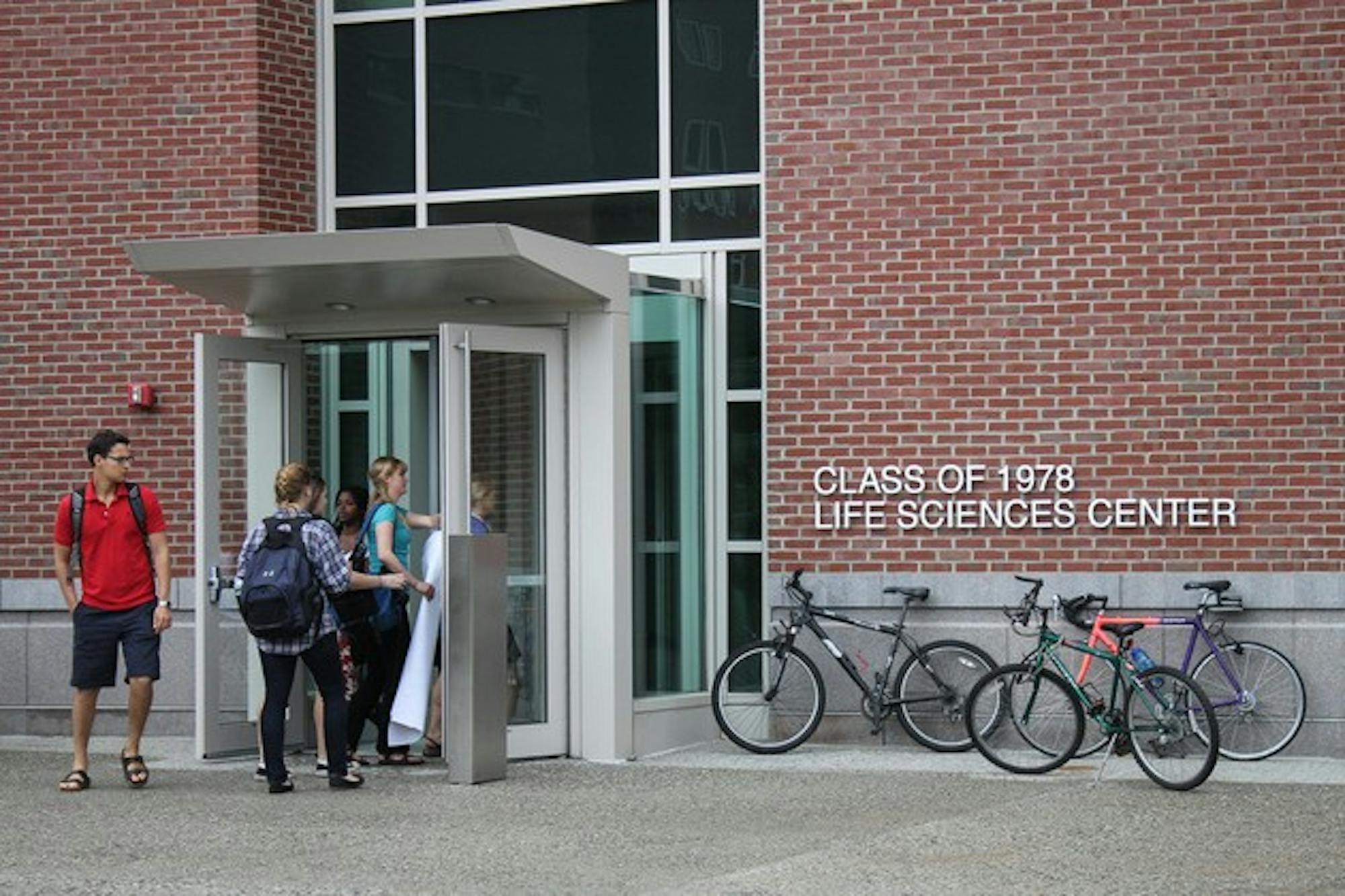In addition to bringing prestige and solidifying Dartmouth's role as a leading research university, joining the AAU would give College administrators an opportunity to participate in policy discussions with colleagues from other member institutions.
The AAU, an organization of 62 public and private research universities in the United States and Canada, invites schools to join based on high-quality research and graduate education programs. Membership provides schools with a chance to share best practices and shape polices that affect research universities, said Andrei Ruckenstein, former vice president and associate provost for research at Boston University, which became the AAU's newest member last year.
The rising cost of college education, current financial pressures on research funding, changes in educational resource allocation and debates around the potential impact of online education suggest a need to change research universities' financial models, Ruckenstein said in an email. The AAU provides a forum for exploring these topics during a time of uncertainty in higher education.
"It is important for an institution of this level to have its voice heard and participate in these closed-door discussions," he said.
While the AAU advocates on behalf of all research universities, not only its member institutions, affiliation provides administrators with direct participation in conversations that shape lobbying efforts.
Dartmouth is the only Ivy League school that has not spent money lobbying in the past year, according to the Center for Responsive Politics. Instead, the College relies on its ties with New Hampshire and Vermont congressional delegations, alumni connections in Washington, D.C., and membership in other national higher education advocacy organizations to further its institutional interests in state and federal policy, associate vice provost for government relations Martha Austin said in a previous interview.
The AAU periodically considers schools for membership but does not release information about which schools are under review, said Barry Toiv, vice president for public affairs. After a committee composed of member university presidents and chancellors reviews and recommends a university, the association holds a vote. A three-fourths majority must approve a new institution.
In the past decade, only two new universities have joined. As of 2010, annual dues are $80,500.
Schools are evaluated primarily on their level of federal research support, their researchers' membership in the national academies and faculty awards and citations. Other sources of funding, doctoral education programs, the number of postdoctoral appointees and undergraduate education programs are also considered.
Dartmouth received around $160 million in federal support for research in the 2012 fiscal year, according to the Office of Sponsored Projects. Two Geisel School of Medicine professors belong to the National Academy of Science, three faculty members are part of the National Association of Engineering and 18 professors are members of the Institute of Medicine. Geisel School of Medicine professor Jason Moore was selected as a Kavli Fellow of the National Academy of Sciences in July.
While Dartmouth meets a number of the AAU's criteria, its narrow scope of doctoral programs and reputation as a college focused on undergraduate education may prevent it from being seriously considered.
The College's lack of doctoral programs in the humanities and social sciences may be a barrier to its inclusion in the AAU. Dartmouth awarded 91 PhDs in 2013, an increase from 56 in 2004. However, the College's limited number of doctoral programs differentiates it from peer institutions. Harvard University, for example, offers doctoral degrees in 57 different disciplines, while Dartmouth offers 16 doctoral programs in only math and science-related fields.
Another possible impediment to membership is Dartmouth's name.
"It would be kind of strange to be a member of the Association of American Universities if your name is Dartmouth College," interim associate provost for research Roger Sloboda said.
To Americans, the word "college" suggests a small liberal arts school, not an institution boasting a building such as the Class of 1978 Life Sciences Center, equipped with research technicians and post-doctoral fellows, Sloboda said. The name is even more misleading in Europe, where college often means secondary school.
"It hurts our reputation," Sloboda said.
Even within academia, professors are sometimes belittled by their peers because of Dartmouth's status as a college a pejorative term among research heavyweights. Sloboda said some of his grant proposals that received positive comments have been denied due to concerns that he would not have adequate time to focus on research because of his teaching responsibilities.
Discussion surrounding the College's name is not new. Strategic planning recommendations released in March included a suggestion to use the name Dartmouth University, citing concerns about the institution's global reputation.
Sloboda said Dartmouth has a rich history when it comes to research the first medical X-ray was taken by a physics professor at the College in 1896 and the strength of the College's research deserves to be recognized by the AAU.
"I think it's something Dartmouth ought to be part of," he said.
Though Toiv could not comment on whether the College fulfilled AAU criteria, he said its current non-member status does not detract from its quality as a university.
"Dartmouth certainly would welcome an invitation to join the AAU," former College President Jim Yong Kim previously told The Chronicle of Higher Education. "Our level and complexity of research activity and our commitment to research seem to us reflective of a leading institution."




